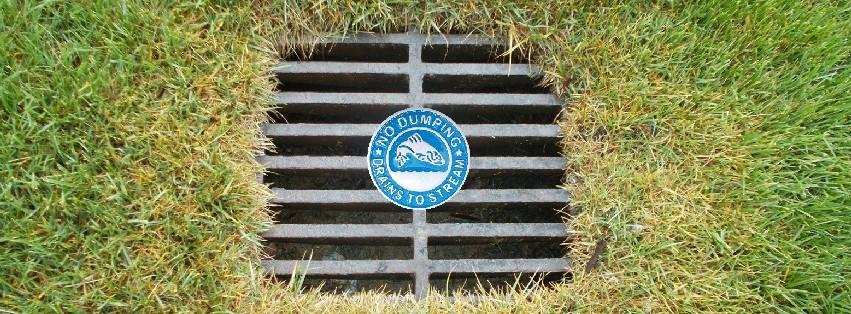JMU maintains an IDDE Program to prevent unnecessary pollution of Virginia’s waterways and preserve the Chesapeake Bay. All students, employees, and contractors are required to follow the campus wide IDDE Policy. JMU's IDDE Program also consists of a GIS based storm sewer system map, periodic outfall inspections, and an education program.
What is an "illicit discharge?"
By definition, an illicit discharge is any discharge to a municipal separate storm sewer system that is not composed entirely of stormwater, except discharges pursuant to a separate VPDES or state permit (other than the state permit for discharges from the municipal separate storm sewer), discharges resulting from fire fighting activities, and discharges identified by and in compliance with 9VAC25-870-400 D 2 c (3). In other words, an illicit discharge is the discharge of any substance into a storm sewer system that is NOT stormwater. Some examples of these substances include:
-
- Cleaning Supplies
- Construction Wastes (debris, sludge, etc.)
- Non-Residential Vehicle Wash
- Paint
- Vehicle Oil
Are there exceptions to this policy?
Yes! Below are examples of what is not an illicit discharge:
-
- Fire Fighting Activities
- Dechlorinated Swimming Pool Discharges
- Landscape Irrigation and Lawn Watering
- Foundation/Footing Drains
- Water Line Flushing
- Discharges of Potable Water Sources
- Street Wash Water
- Air Conditioning Condensation
What should I do if I witness an illicit discharge?
Contact the Stormwater Pollution Hotline:
Stormwater Pollution HotlineIf you notice any illicit discharges or have concerns about practices on JMU grounds or construction projects please contact our Stormwater Coordinator by phone at (540) 568-3174 or email at stormwater@jmu.edu. |
What is the difference between a storm sewer and a sanitary sewer?
Sanitary sewers are underground pipes that carry liquid from places like the bathroom, sinks, and kitchens to a wastewater treatment plant. Substances that enter sanitary sewers are filtered and treated before being discharged.
While storm sewers may seem similar they are only designed to carry stormwater and runoff. Storm sewers are not treated and lead directly into our natural environment. Substances that are not stormwater should never be released into the storm sewer system. At JMU, many storm sewer inlets can be identified by the “No Dumping – Drains to Stream” medallion:

Want to find out more about Illicit Discharge Detection and Elimination?
Other resources can be found through the EPA, or the DEQ State General Permit.
